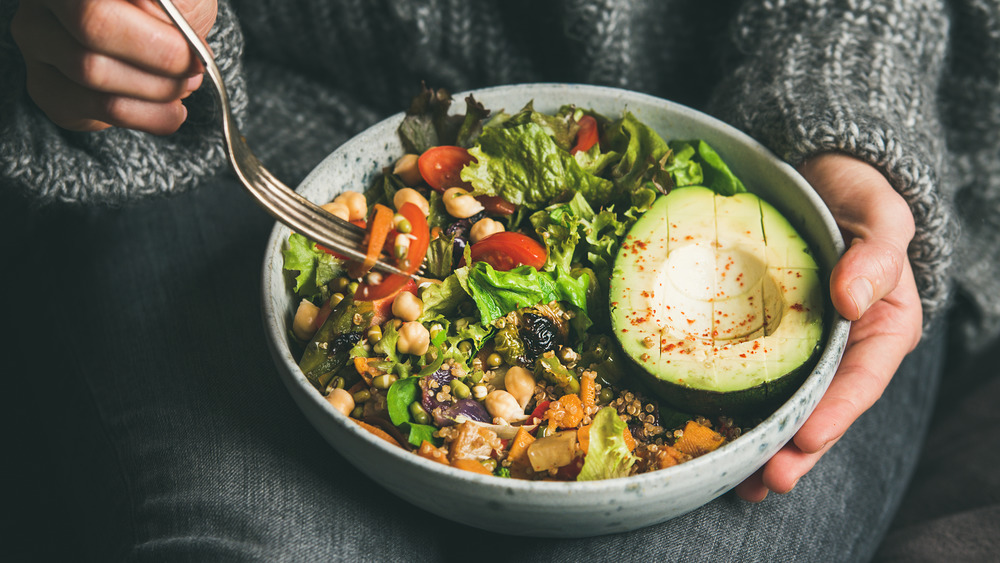Does The Nutritarian Diet Really Work?
Diet plans typically come with promises. The promise to lose weight, have more energy, and feel more in control are a few of the standard pledges. According to U.S. News, the Nutritarian diet promises you'll lose weight and keep it off. And Joel Fuhrman, the family physician who created the Nutritarian diet in 2003, claims you'll reach your peak health while doing so. Peak health is a mighty promise, but enough to have people asking about how the Nutritarian diet works.
Healthline states that the Nutritarian diet is centered around plant-based and minimally processed foods — think low-salt, low-fat, and mostly gluten-free. The diet doesn't just have one meal plan to follow. You can choose between the "Eat to Live" plan which aims to help you lose 20 pounds in six weeks. There is also the expedited "10 in 20" detox plan which you've probably guessed, is set up for participants to lose ten pounds in 20 days.
Either plan you chose, be ready to load up on the veggies! Good Housekeeping states that one of the diet's well-known rules is "one pound-one pound." You don't count calories, but it is encouraged to eat one pound of raw vegetables along with one pound of cooked vegetables each day. "You don't necessarily need to measure your food; just use this figure as a reminder to eat a hefty amount of veggies every day," explains Fuhrman.
The diet is based on four core principles
So how do we know this diet works? According to U.S. News, Fuhrman based this diet based on more than 20 years of research of foods and eating plans that promote health and longevity. No matter what meal plan you choose within the Nutritarian diet, there are four core principles attached to all of them. Everything you consume while following this diet should: be nutrient dense, be varied to achieve nutrient adequacy, free of or very low in toxins such as added chemicals and carcinogens, and hormonally favorable. This means you should choose carbohydrates with low glycemic levels, such as plant-based ones, and try to avoid animal proteins.
This may sound easy enough, but Healthline warns this diet could be difficult to follow for some. Snacking is discouraged and salt intake is limited to 1,000 mg a day. In addition, the list of "banned" foods that include processed foods, white flour, sugar, oil, and fruit juices can be difficult to completely cut out. You should also be a fan of salads from the start. U.S. News shares that if you are planning on trying any of the meal plans on the Nutritarian diet, then keep your salad bowl close. The diet encourages salads as a main course for multiple meals a day. We encourage peak health, so kudos to anyone able to follow this diet or meet their health goals in other ways.


